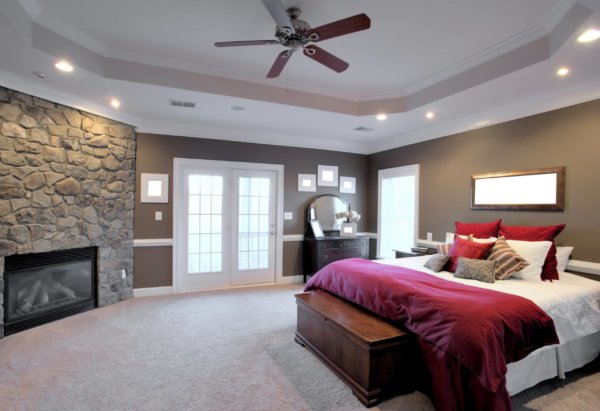The Impact of Ceiling Height on HVAC Efficiency
Do you know how ceiling height affects HVAC efficiency? Well, maybe not. But if you think about it, it should be obvious that it does. If the ceiling is too low, you run a higher risk of moisture coming into your home because warm and cool air will travel up and down your ducts much more often than they would with higher ceilings. Here are a couple of ways how your ceiling height can affect your HVAC efficiency.
How Do You Know Your HVAC Is Not Efficient?
There are several signs that your HVAC unit is inefficient. If you notice any of these symptoms, it may be time to upgrade your system or repair your HVAC system.
Your Home Is Too Humid
The first thing you should do if you suspect that your home is too humid is to check the indoor relative humidity. You can do this with a hygrometer, which measures the amount of water vapor in the air. If it’s above 60%, then it’s too humid.
The second indicator of humidity is to look at the temperature in the room and compare it to the temperature outdoors. If it’s warmer than outside, then there’s more moisture in your home than outside air. Hence the need to contact a Sacramento professional HVAC contractor from Crystal Blue for assistance with this problem. Your Heating or Cooling Doesn’t Feel Even.
Some Rooms Are Too Hot or Too Cold
The temperature in your home should be set according to the type of HVAC system you have, but if you notice that some rooms are too hot or too cold, it may be time to consider upgrading. You can also check to see if your thermostat is set correctly: if it’s set to 72 degrees and you feel like it’s hotter than that, then your system needs some work.
Your Energy Bills Are Growing
If you’re paying more for electricity than normal, it may mean that your system isn’t working properly—and this can be costly over time. If you notice an increase in costs over time, it might be wise to check out replacement options before making any major investments.
How to Calculate Your Energy Efficiency?
The first thing you want to do is check the rating of your HVAC unit. The most common way to do this is by looking at the outside of the unit. If you have a unit that has a label on it, it should be rated for specific room size and output. For example, if an 18,000 Btu/hr. HVAC was installed in an 8×12 room, it would have an efficiency rating of 12.5 percent—or 1,850 Btu/hr. per hour. If a 16,000 Btu/hr. HVAC was installed in a 10×10 room, its efficiency rating would be 11 percent—or 1,650 Btu/hr. per hour.
How Do Lower Ceilings Affect the Efficiency of Your HVAC System?
When it comes to efficiency, the ceiling is one of the most important elements in your home. It can affect the performance of your HVAC system and even lower your energy bills.
The Air Is Denser
When your HVAC system is in a lower ceiling area, the air entering your home will become denser. This means that you will be able to use less coolant and energy to achieve the same cooling results. In addition, because of the lower air pressure, it will take longer for the air to flow through your ducts and into your rooms.
There Are Fewer Cubic Feet in the Space
A common misconception about HVAC systems is that they need a large amount of space to work effectively. However, this isn’t always true. With a smaller room size and lower ceilings, you can still achieve the same temperature with less coolant or electricity usage by using an efficient HVAC system.
How Can You Adjust Your HVAC System to Be Efficient in Low Ceiling?
Low ceiling locations are not uncommon in the United States. While it may seem like an inconvenience, it can be an opportunity for you to make your home more efficient by adjusting your HVAC system. Here is how you can adjust your HVAC system to be energy efficient.
Use a Ductless System
The most common way to decrease your energy bills is to install a ductless mini-split system. This type of heating and cooling system can deliver heat or air conditioning in every room in your home, unlike traditional HVAC systems, which are only able to heat one room at a time.
If you need to reduce your energy usage in a single room, then use a low-profile ductless mini-split system that can be placed on an existing floor. The unit will be able to heat or cool the entire room without any ductwork being needed.
Use Proper Insulation
Insulation is a very important part of your HVAC system and will help to save on energy costs. If you are not already using insulation, it is important that you do so. This is because insulation helps to keep your house cool in the summer and warm in the winter. It also helps keep heat out of your walls, which can cause damage over time.
How Do High Ceilings Affect the Efficiency of Your HVAC System?
High ceilings are a great way to add value to your home. They can give you a feeling of spaciousness and light that you just can’t replicate with dark ceilings. But high ceilings can also be a nuisance for your HVAC system. High ceilings affect the efficiency of your HVAC system in several ways:
High Ceilings Mean More Space to Heat and Cool
A high ceiling is great for adding height to any room, but it can also make your HVAC system work harder. High ceilings mean more space for the air to flow through than a low ceiling. This means more heat and cooling are needed to keep the room at the desired temperature. The more air that needs to be moved around in a room, the more work the HVAC system must do.
High Ceilings Make It Harder for the HVAC System to Balance Humidity
The more open space there is above your home, the harder it is for your HVAC system to balance humidity. High humidity levels in the air can lead to condensation on windows and other surfaces, which can cause mold and mildew growth. In addition, high humidity levels increase the risk of damage from excessive moisture. If you have high ceilings in your home, make sure that your HVAC system is equipped with an exhaust fan or cylinder to help control water droplets from collecting on windows or walls.
How Can You Adjust Your HVAC System to Be Efficient in High Ceiling?
The first factor is to adjust your thermostat according to the room temperature. You can adjust your thermostat so that it would be comfortable even on a high floor. In addition, you can also install a fan on top of your thermostat to help circulate air in your room easily.
Secondly, you should consider installing an exhaust fan in your bathroom to remove moisture from the bathroom, which causes molding and mildew problems. The third factor is using energy-efficient light bulbs as well as curtains instead of traditional ones.
When it comes to the design of a space, ceiling height is an important consideration. It doesn’t just affect aesthetics, as one might assume. In fact, ceiling height can also have an impact on your indoor air quality through the HVAC system. That’s one of many reasons why it’s important for your ceilings to be the proper height. When you need advice, contact Crystal Blue Plumbing, Heating & Air in Sacramento, CA. We provide HVAC installation maintenance and repair service at an affordable price. In addition, we offer all types of plumbing services too.







